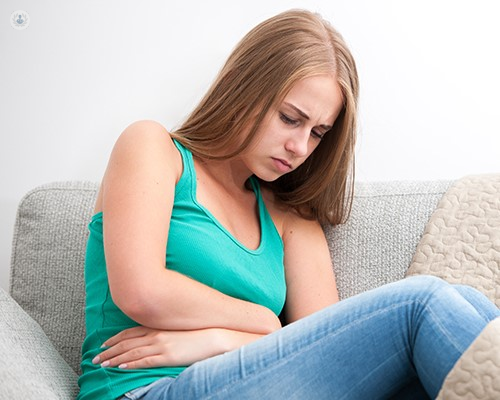What your diarrhoea is telling you
Escrito por:We all experience loose bowel movements at some point in our lives. We recently spoke to Dr Alberto Murino, a leading consultant gastroenterologist, about diarrhoea . Dr Murino shares with us the exact definition, what the colour of our faeces says about our health and what some of the more serious symptoms are to look out for.

So what exactly is diarrhoea?
Diarrhoea is defined as three or more bowel motions in 24 hours with increased water stool content (Bristol chart 5-7). Diarrhoea is defined as acute when it persists for less than 14 days and is chronic for more than 30 days. If diarrhoea resolved between 14 to 30 days it is then defined as persistent diarrhoea.
The most common cause of diarrhoea is generally infective in nature.
What does the colour of diarrhoea indicate?
All shadows of brown represent the standard and physiological colour of the stool, which is produced by the stercobilinogen (fecal urobilinogen).
Light colour or white stools can be linked with the lack of bile in the stools, due to reduced bile excretion.
Black tarry stools (also called melena) may be caused by upper gastrointestinal bleeding and it is usually associated with an unpleasant smell.
Yellowish stools can be caused by the presence of undigested fat in the stools. This can be associated with pancreatic insufficiency or malabsorption disorders.
The presence of blood in the stools is associated with a lower gastrointestinal bleeding and/or haemorrhoids.
If diarrhoea happens occasionally, should I still go to the doctor?
If diarrhoea is occasional, occurring few times a month, in a patient younger than 50, with no family history of bowel cancer and no blood in the stools there is no need to see a doctor. However, if the episodes of diarrhoea increase happening more frequently, an appointment with the GP is recommended.
What does it mean when diarrhoea is accompanied by vomiting?
If the diarrhoea is accompanied by vomiting and resolved within couple of days, the nature of the diarrhoea is likely to be infective.
When should I seek help from a specialist?
A referral to the gastroenterologist should be reserved for patient with:
- Chronic diarrhoea
- Presence of blood in the stools or melena
- New onset diarrhoea in patient older than 50 years
- Nocturnal diarrhoea
- Diarrhoea associated with weight loss
· Diarrhoea in patient with first degree relatives with colorectal cancer or inflammatory bowel disease
- Diarrhoea with raised faecal calprotectin
If you’re suffering from persistent or chronic diarrhoea, it’s recommended that you book an appointment with a top gastroenterologist such as Dr Alberto Murino . Visit his Top Doctors profile today for more information.


